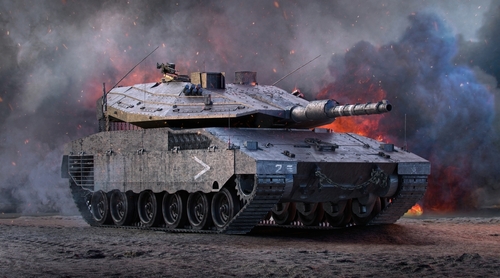In a stark warning, Poland’s top military official has emphasized the nation's need to prepare for a potential full-scale conflict. General Wieslaw Kukula, the head of Poland's armed forces, stated that the country must be ready to face significant military challenges in light of the escalating geopolitical tensions with Russia.
Speaking at a recent defense forum, General Kukula highlighted the urgency for Poland to balance its military training and enhance its border defenses. "We must prepare for the worst-case scenario to ensure the security of our nation," he said, underlining the importance of a robust military strategy.
🚨Update: War!! Poland is preparing the Military for a full-scale conflict with Russia, Polish Supreme Commanding General Wieslaw Kukula says at a press conference!! pic.twitter.com/xTkaSo0ReN
— US Civil Defense News (@CaptCoronado) July 10, 2024
This announcement comes as NATO strengthens its eastern defenses in response to Russia's aggressive posturing. With the ongoing conflict in Ukraine showing no signs of abating, NATO has increased its military presence in Eastern Europe, including large-scale drills and the establishment of new training centers. Recently, NATO set up a centralized command in Germany and a joint training and analysis center in Poland, aiming to bolster the alliance's readiness and interoperability.Poland's security concerns are shared by its neighbors in the Baltics and Eastern Europe. Lithuania, Latvia, and Estonia have also ramped up their military preparedness, wary of potential Russian incursions given their historical context and significant Russian-speaking minorities. These countries fear that Russia might use these minorities as a pretext for aggression, similar to its actions in Ukraine.
Poland’s proactive stance includes plans to significantly increase its defense budget and modernize its military arsenal. The country has been actively purchasing advanced military equipment from the United States and other NATO allies, including F-35 fighter jets and Patriot missile defense systems. This move aims to enhance its defensive capabilities and deter any potential threats from the east.
⚡️Ukraine FINALLY Gets F16 Fighter Jets; Poland PREPARES For War | Breaking News With The Enforcer https://t.co/cQSMr85zhz pic.twitter.com/hmS23nK9yw
— The Enforcer (@ItsTheEnforcer) July 10, 2024
NATO's Secretary-General Jens Stoltenberg has reiterated the alliance's commitment to defending all member states. During a recent summit, Stoltenberg emphasized that NATO's enhanced presence in Eastern Europe is a direct response to the growing security threat posed by Russia. "We are not looking to provoke conflict, but we must be prepared to defend our territories," he said, highlighting the need for unity among NATO members.
General Kukula's warning aligns with broader concerns about Russia's military ambitions. Analysts suggest that Russia's continued aggressive rhetoric and military activities in Ukraine could foreshadow a wider conflict in Europe. The head of Poland’s national security agency, Jacek Siewiera, suggested that an attack could come from NATO’s eastern flank, potentially within the next three years. This timeframe necessitates urgent military enhancements and increased troop numbers to create a clear deterrent against Russian aggression.
The urgency of Poland's military preparations reflects a broader apprehension within NATO. As the alliance continues to support Ukraine with military aid and strategic planning, it also underscores the need for preparedness against any expansion of the conflict. The West must remain vigilant and unified in its response to the evolving security dynamics in Europe, ensuring that any threat to its members is met with a decisive and coordinated defense strategy.
In conclusion, General Kukula's call for heightened military readiness is a critical reminder of the volatile security landscape in Eastern Europe. Poland’s strategic enhancements and NATO’s robust support are pivotal in safeguarding the region against potential Russian hostilities. As the situation unfolds, maintaining a state of preparedness and solidarity among NATO allies will be essential in deterring aggression and preserving peace in the region.




